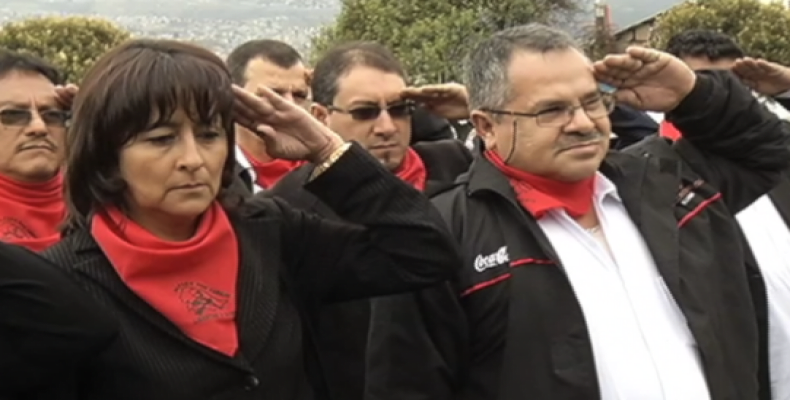Quito, November 9 (teleSUR-RHC)-- Ecuadorean victims and their families may finally see justice for historical crimes against humanity after almost three decades of impunity protecting the perpetrators.
Ecuador is launching its first-ever trial for crimes against humanity on Monday against five former military generals and colonels for alleged crimes committed between 1985 and 1988 under the right-wing government of then President Leon Febres Cordero.
“We hope that Ecuadorean justice avails the evidence presented by the prosecution against five former military officials allegedly responsible for the crime against humanity," said Ecuador’s Attorney General Galo Chiriboga ahead of the trial, adding the case is not about “revenge” against the Armed Forces, but about bringing those guilty of crimes to justice.
The case deals with human rights abuses committed against three former members of the group Alfaro Vive Carajo, a revolutionary guerrilla movement that operated in Ecuador between 1982 and 1991. Former military officials will face trial for rights violations committed against Alfaro Vive Carajo members Luis Vaca, Susana Cajas, and Javier Jarrin between 1985 and 1988.
Vaca, Cajas, and Jarrin were arrested without a warrant on November 10, 1985 in Ecuador’s northern province of Esmeraldas. They were detained by military intelligence who subjected them to harsh physical and psychological torture and sexual abuse.
Cajas and Jarrin were released after 15 days, while Vaca remained in detention for three years before his release in 1988.
The trial will gather evidence from 69 witnesses, 11 experts, and more than 70 documents relating to crimes against humanity of illegal detention, sexual violence, torture, and enforced disappearance.
According to Ecuador’s Attorney General Galo Chiriboga, the case represents the country’s “legal commitment to the Ecuadorean society” to investigate crimes and bring the perpetrators to justice. “Prosecuting crimes against humanity is a pending task in Ecuador,” said Chiriboga.
The trial is the latest phase in Ecuador’s ongoing effort to seek justice for members of Alfaro Vive Carajo and other victims of historical political persecution and human rights violations committed under the government of Febres Cordero, who oversaw an authoritarian crackdown on political dissidents.
Although Ecuador returned to civilian rule after years of military dictatorship in 1979, the so-called transition to democracy did not ensure human rights were respected. Under Febres Cordero from 1984 to 1988, arbitrary detentions, torture, extrajudicial killings, and forced disappearances, as suffered by members of Alfaro Vive Carajo, were widespread.


